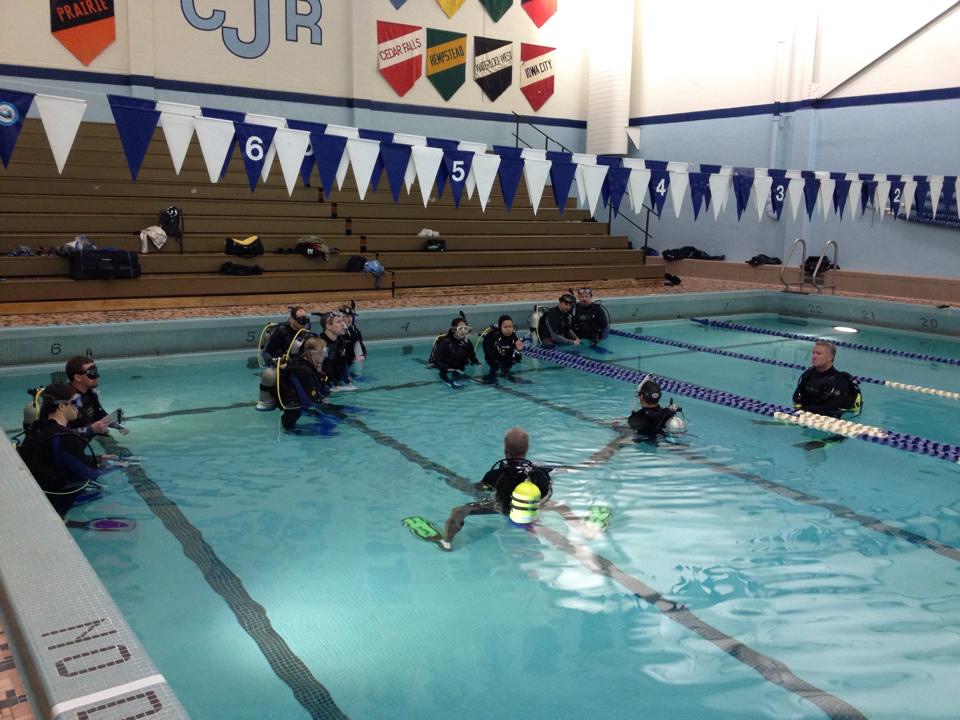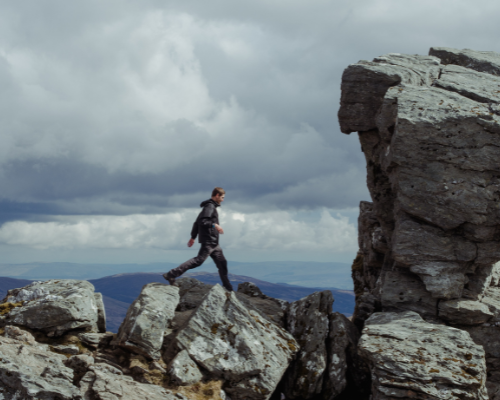In February I listed out, “7 goals I’m setting for 2014”. One of which was to get officially certified as a scuba diver. This, “license” so to speak is good for life and requires a mix of skills and book knowledge. I’ve wanted to be able to scuba dive ever since I went snorkeling for the first time and met the limitation of my own lung capacity.
Then when I went on my first cruise and learned I was limited by not being previously certified, I knew I had to do it. Many years later, and always being caught off guard when the next cruise came up, I made it a formal goal for 2014.
So here’s a brief overview of Phase I. The first part consists of classroom instruction, a final test, and the ability to prove skills within a swimming pool. I chose Seatasea Watersports Center, booked my spot, ordered my materials and within a few days I’d received my course book and dvd.
I read the book and watched the dvd off and on for a couple of weeks. There was a lot to cover, but the main topics were simple to understand.
Finally it was time for actual class itself, which took part on a Saturday and Sunday in April. Both days consisted of some time in the classroom, a group of about 8-10 people, and a few hours of skills practice. The instructor had a list of skills that each person needed to pass, so he went over it first, told you what he needed to see, and then made you do it. I’d never used scuba diving equipment before, so I was curious how it would feel to breathe underwater. No issue at all. I took my first breath, realized, “Hmm, I’m breathing…” and that was that.
I had a few instructors helping out, all of whom were knowledgeable about the material. There was never a time when I felt uncomfortable in the water, or that they might put me in a situation I wasn’t ready for.

The skills themselves focused on just what you’d think. Real time necessities for scuba diving. (Hey be honest, how many of you know what S.C.U.B.A. actually stands for?
“Out of Air” was not nearly as intense as it sounds. In this skill you run through a couple of different scenarios where your air tank no longer works, or you’ve run out of air. First you simulate it by signaling to your buddy (you’re always supposed to travel with a buddy) that you’re out of air. You then grab his secondary regular (mouthpiece) and breath from that. Scuba equipment has two mouthpieces or regulators, which supply air. The black one is for yourself and the yellow one is a safety for you or your buddy to use in case of emergency.
In addition, there’s an exercise where you don’t just simulate being out of air, but actually run out of air. One of the instructors comes up behind you and actually turns your air off. He makes sure you know he’s doing this, so it’s not a surprise. But it was fun to watch everyone’s faces when he said this was the next skill. Even being in a swimming pool only 10-15 feet deep, having a buddy, and being surrounded by instructors, it’s a strange skill to anticipate.
Probably the most difficult skill was the free float. You need to float, or tread water for a full 10 minutes. if you touch the sides of the pool you need to start over. Not being an especially strong swimmer, I wondered if I’d have any difficulty with this. It was definitely the hardest skill for me, but I got it on the first try. The instructors relayed some techniques on breathing deeply, lying on your back, and using the air in your lungs to help keep you afloat.

Saturday and Sunday were a few hours in the pool and a few hours of classwork. After the second session on sunday we came back to the classroom, reviewed the material, and took the final test. Everyone passed and as long as you pay attention and read the material, you should have no issue at all.
So I passed Phase I of the Scuba Diver’s Certification, which was pool skills and a knowledge test.
I’ll write about Phase II shortly. Phase II consists of four outdoor dives, in which you need to prove the skills you learned as well as prove competency of few additional ones needed for formal certification.





Welcome to the club! For me the most difficult part was having to remove my mask underwater. My absolute biggest fear and I was dreading it for months. I did it once and hope I never have to do it again!
We got certified in Honduras about 12 years ago. We did all training in the ocean as the resort did not have a pool. So that was pretty awesome.
That’s fantastic Laura! Yea removing the mask was certainly odd. Strange feeling.